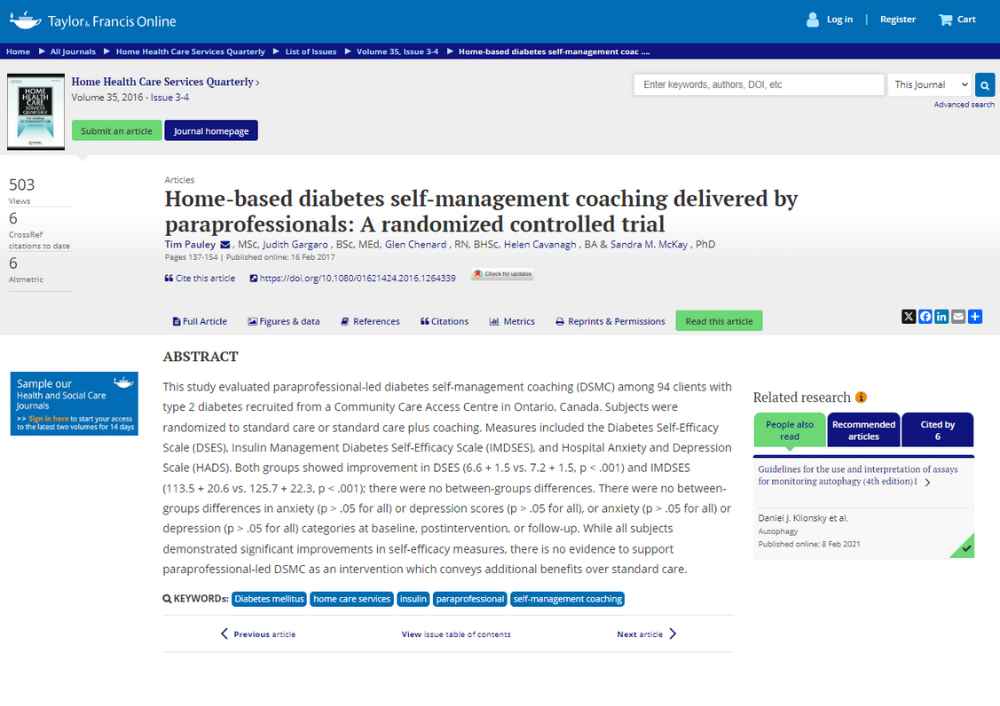Home-based diabetes self-management coaching delivered by paraprofessionals: A randomized controlled trial
This study sought to evaluate the efficacy of a PSW-led coaching intervention to improve diabetes self-efficacy, based on the rationale that PSWs are a relatively more cost-effective that traditional nurse-led self-management coaching interventions.
Author: Tim Pauley, Judith Gargaro, Glen Chenard, Helen Cavanagh & Sandra M. McKay
Publication Date: November 29, 2016
Description: This study evaluated paraprofessional-led diabetes self-management coaching (DSMC) among 94 clients with type 2 diabetes recruited from a Community Care Access Centre in Ontario, Canada. Subjects were randomized to standard care or standard care plus coaching. Measures included the Diabetes Self-Efficacy Scale (DSES), Insulin Management Diabetes Self-Efficacy Scale (IMDSES), and Hospital Anxiety and Depression Scale (HADS). Both groups showed improvement in DSES (6.6 + 1.5 vs. 7.2 + 1.5, p < .001) and IMDSES (113.5 + 20.6 vs. 125.7 + 22.3, p<.001); there were no between-groups differences. There were no between-groups differences in anxiety (p > .05 for all) or depression scores (p > .05 for all), or anxiety (p > .05 for all) or depression (p > .05 for all) categories at baseline, postintervention, or follow-up. While all subjects demonstrated significant improvements in self-efficacy measures, there is no evidence to support paraprofessional-led DSMC as an intervention which conveys additional benefits over standard care
Access: To read this article in full you will need to make a payment.
Keywords: Diabetes mellitus; home care services; insulin; paraprofessional; selfmanagement coaching



